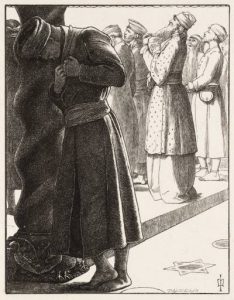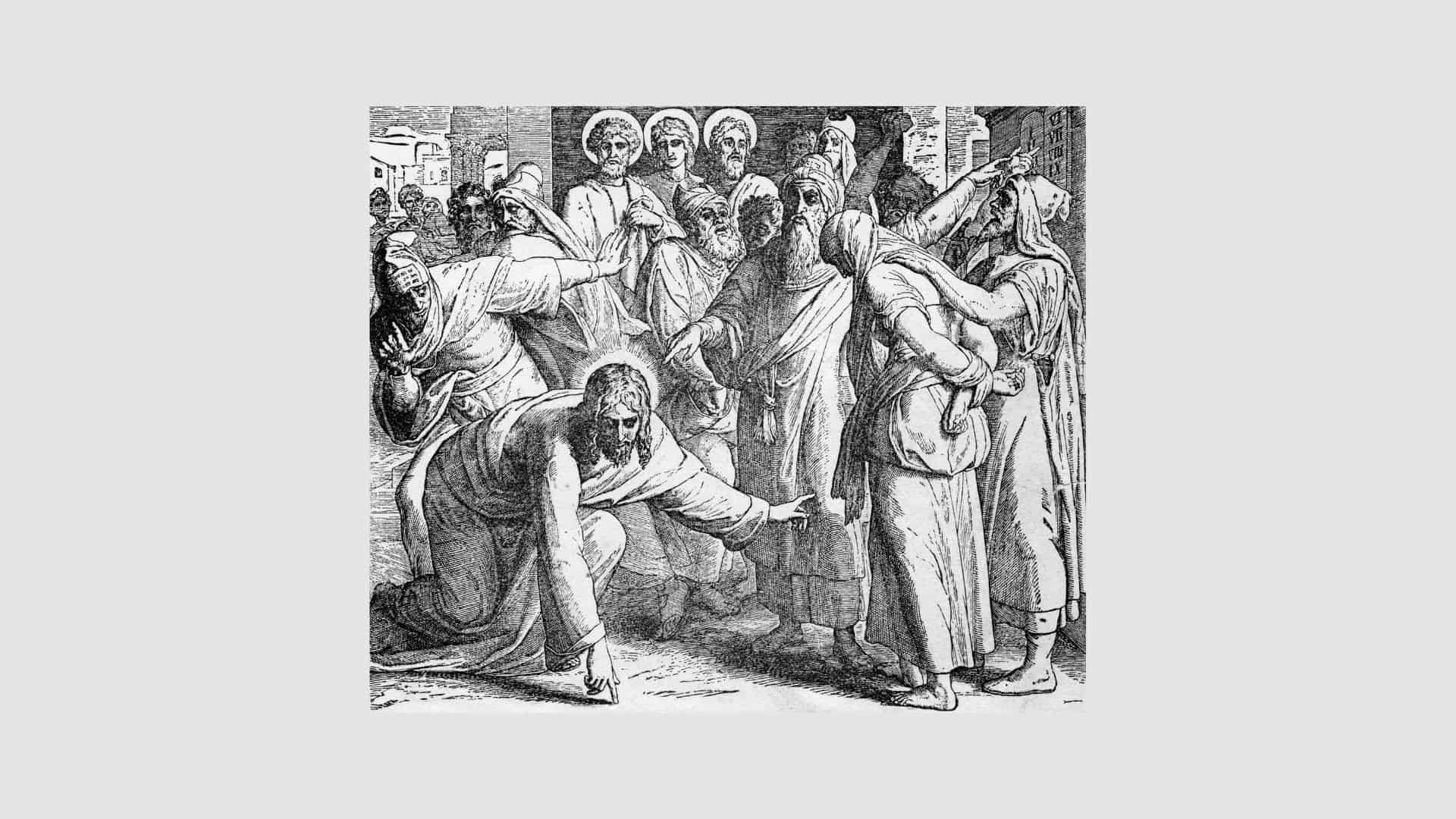In John 8:1-11, the scribes and Pharisees brought to Jesus a woman who had been “caught in the act of adultery” (v. 4). They were ready to stone her, but even more than that, they wanted to trap Jesus (see v. 6). They reminded the Lord that Moses’ law says adulterers should be stoned. Did He agree with the law or not? (See v. 5.) Jesus was wise to their scheming, and, pretending not to hear, He “bent down and started to write on the ground with his finger” (v. 6). They kept on asking, and so Jesus stood up and said, “Let any one of you who is without sin be the first to throw a stone at her.” (v. 7). Then “he stooped down and wrote on the ground” once more (v. 8). Convicted by Jesus’ words, the woman’s accusers, one by one, walked away (see v. 9).
Here was the scribes’ and the Pharisees’ problem. Thinking they had the upper hand by citing the law, they were convinced they were right with God — but pride and arrogance, as well as their many other sins, kept them far away from Him. The Jewish leaders had departed, “until only Jesus was left, with the woman still standing there” (v. 9). She knew she was a sinner and surely welcomed Jesus’ merciful overture:
10 Jesus straightened up and asked her, “Woman, where are they? Has no one condemned you?”
11 “No one, sir,” she said.
“Then neither do I condemn you,” Jesus declared. “Go now and leave your life of sin.”
Jesus further warned against the Pharisees’ posture toward God and toward others in His parable of the two men who went to the temple to pray. We find this parable in Luke 18:9-14:

18:9 To some who were confident of their own righteousness and looked down on everyone else, Jesus told this parable: 10 “Two men went up to the temple to pray, one a Pharisee and the other a tax collector. 11 The Pharisee stood by himself and prayed: ‘God, I thank you that I am not like other people—robbers, evildoers, adulterers—or even like this tax collector.12 I fast twice a week and give a tenth of all I get.’
13 “But the tax collector stood at a distance. He would not even look up to heaven, but beat his breast and said, ‘God, have mercy on me, a sinner.’
14 “I tell you that this man, rather than the other, went home justified before God. For all those who exalt themselves will be humbled, and those who humble themselves will be exalted.”
What a contrast there was between where the Pharisees thought they were in relation to God and where they actually were! Just as remarkably, those who knew, and know, they are far away from God and acknowledge this truth — these people, by God’s grace, are made right with Him! They are “justified” in God’s sight.
Unless otherwise indicated, Scripture passages have been taken from The Holy Bible, New International Version®, NIV® Copyright © 1973, 1978, 1984, 2011 by Biblica, Inc.® Used by permission. All rights reserved worldwide.
top image credit: Nightstick
This page is part of a larger article. Copyright © 2021 by B. Nathaniel Sullivan. All rights reserved.
